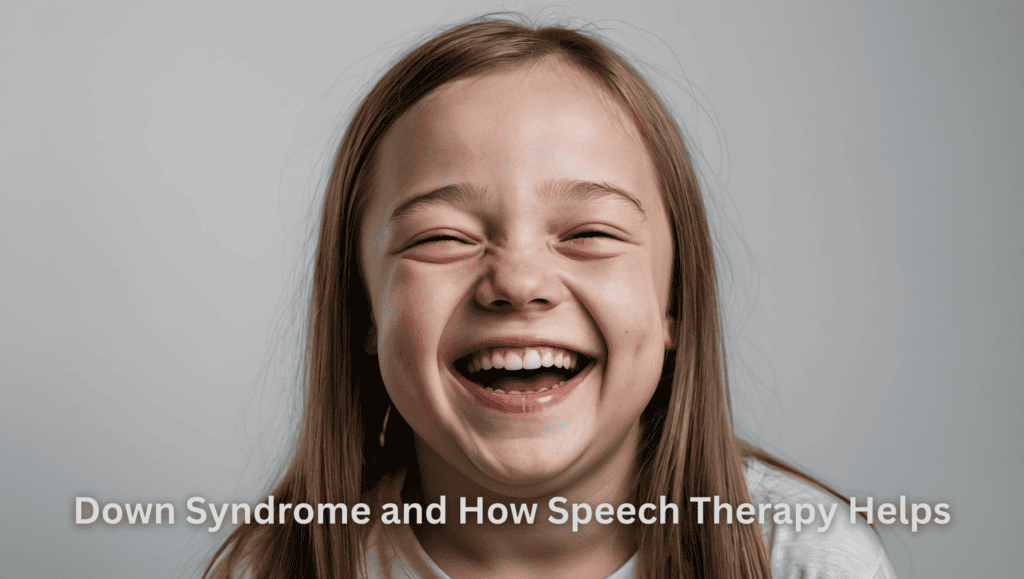Down Syndrome: Toronto Speech Therapists Share How Therapy Helps
Down syndrome, Toronto speech and language pathologists explain, is a genetic medical condition resulting from an extra chromosome 21. Hence, it is also medically known as Trisomy 21. This results in a set of symptoms that varies in severity from person to person with the same diagnosis. Among these are noticeable delays in physical, intellectual and developmental capabilities including speech and language.

Why Speech Delays Happen
Delays in speech and language development in people with Down’s syndrome are caused by different factors. Physical issues, for one, such as weak oral muscle tone causes difficulty in producing sound. This then leads to pronunciation challenges. Furthermore, breath and speech coordination can also become challenging for these children which then manifests as having unclear spoken words.
Certain mental processing difficulties also contribute to the child’s delayed learning of language skills. Slow language processing, for example, affects vocabulary development and sentence construction. The speech challenges of certain children make them use gestures and assistive communication devices instead of speech. Hence for kids with Down syndrome, Toronto speech therapists must be able to work through these challenges to help them speak up and express themselves verbally.
The Role of Speech Therapy
Speech therapy proves essential when a person needs to enhance their communication abilities. For kids with Down syndrome, Toronto speech therapists conduct systematic exercises that help patients develop their oral muscles. This helps as they are teaching effective pronunciation and better listening abilities. Moreover, they can also use sign language and picture-based systems to represent alternative communication methods that help develop speech for affected individuals.
Effective Speech Therapy Techniques
Speech therapists use various techniques to help children with Down syndrome improve their communication skills. These methods include oral motor exercises to strengthen jaw muscles, tongue movements, and lip functions for clearer speech. Repetitive language practice also helps reinforce vocabulary through frequent use of simple words. Additionally, sign language support provides alternative communication methods, while visual aids and picture cards help children associate words with images for better understanding. Lastly, they can also incorporate music and rhymes to make learning language enjoyable and enhance memory functions.
It is also important to note that the earlier the therapy begins for speech problems, the better would be the outcome. The practice enables children to develop better speech patterns and expand their word knowledge base alongside building their communication and self-confidence. This promotes social interaction which supports children to build relationships with their peers, teachers, and family members.
Speech Therapy and Social Skills
Through therapy, children do not just improve their speech. They also develop social abilities that help improve their overall growth and development. Some of the effective techniques that children learn during treatment include turn-taking in conversations to help them participate in discussions with others and active listening to help them understand each other and provide correct responses. Additionally, they can learn how to express emotions through words to help them convey their feelings.
A Path to Better Communication
For children with Down syndrome, Toronto-based speech and language pathologists are an important factor to help them develop their speech and language skills. Here at Speech Link, our goal is to guide your children to improve their speech clarity, improve their ability to understand language, and develop social relationships. We make sure that the skills they master through therapy helps them progress academically as well. Schedule your consultation and assessment today to start your child’s speech therapy journey.
